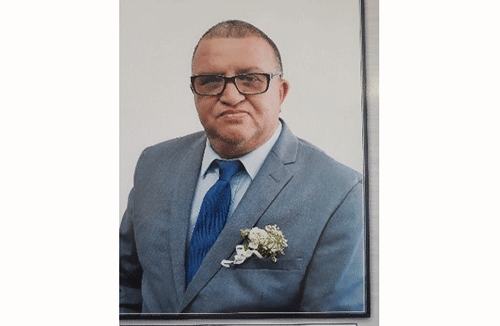As we continue to look at Vision 2030 together, I want us to look at how we can address some of the divisions that baffle us at times. Somewhere, we have to remove the mask and accept that, as a society (nation), we are often guilty of sin or racism.
We prefer our ethnic groups to the exclusion of others. We live with suspicion against each other. Unless we can be humbled and strong enough to accept that we have a problem, then we will not move anywhere as a nation.
Racism is one of the greatest sources of injustice against humanity. Like other places around the world. Namibia is not spared the ongoing struggle against racism. The struggle against racism in the country has its roots both in Colonialism and Apartheid, whereby racial classification (1950) was the foundation of all apartheid laws. It placed individuals in one of four groups: “Native”, “Coloured”, “Asian”, “White” ‘’Non- European” or “Non-White”. They were several ill-treated and marginalised. Apartheid fuelled animosity and hatred that continues to haunt our society today.
Even after the fathers of the Constitution advocated for a reconciled nation, the shackles of racism are still with us. This is experienced in schools, hospitals and workplaces where complaints and charges of racism always arise.
Some lead to demonstrations while others go through the courts of law. The challenges of racism in Namibia seem to be taking turns. There are incidents, for example, where black farm workers are brutally killed while in some farms white farmers have been killed by black farm workers.
In 1994, a genocide took place in Rwanda. This was an implosion of many years of building walls of hatred between two ethnic groups that are not very distinct from one another – the Hutus and the Tutsis; there was a culture of looking down upon each other, believing that one group was better than the other. These feelings of suspicion culminated in outright racism in the public service, in the school system and even in society. The result was the tragedy of a nation that massacred itself.
Namibian people at large had the courage and anger which charged them to unite against racism during the apartheid era. In the post–apartheid dispensation, we are experiencing both old and new forms of racism. Therefore, we need to continue the struggle against racism in all forms, because, like the Covid-19 pandemic, racism mutates and seeks to return with a vengeance. Racism can be tackled if the Christian family and society become faithful to their confession. Through that, we will be powerfully motivated to break down the struggles of racial division and challenge the systems that subtly continue to sustain racism in our society today.
An emphasis on the social construction of race does not seek to deny the biological traits of race since through the fate of Mother Nature, all human beings are born into a system they did not create, initially unaware of their family’s status, and they are gradually socialised into the upside or downside of class, race, gender, and other hierarchies. But they become aware of the social meaning of their identities, and they then can choose whether to accept or resist systems of domination. But what is clear is that the intersection of class and race is complex, hence it is argued that when racism becomes the single focus in issues of social disintegration we may run the risk of overlooking the millions of working-class and poor white people who face the challenge of classism in their daily lives. On the other hand, when on focus for a healthy society is only in class issues then we create obstacles in the path of people of colour in their struggles for self-affirmation in a society that sees themselves as an inferior race.
In the Christian family and society does not condemn racism or turn a blind eye to it, we become an accomplice and a life-denying society. We are called to celebrate diversity, promote tolerance, and accommodate one another. As an institution that is set apart, the church and community must be at the forefront of the struggle against race systems that benefit the privileged at the expense of the less privileged majority. The Christian family should speak out against institutionalised social and economic divisions that cause social friction. The Christian family and society, therefore, cannot afford to be quiet when the evils of racism destroy social harmony.
The most powerful expression of justice in a relationship is to treat everyone with Love, Care, and Compassion, whatever their ethnicity, gender, class, status, or race. According to St Paul: “There is neither Jew nor Gentiles, neither slave nor free, nor is there male and female for you are all one in Christ” (GAL 3:28). As children we sang, “Let it begin with me.” the words roll off our tongues easily, but they are work we need to examine –and to live – daily. While commemorating the Day of the African Child on the 16th of June let us use it as a catalyst to disseminate more information, especially on racism and its consequences rather than just celebrating it as a custom or ritual. The reverend Dr Allan Boesak, in his book entitled, Dare We Speak of Hope, states that “hope has two children, namely anger and courage.” He makes the point that we should maintain our “anger at the way things are and dare to believe our efforts will make a difference”.
*Reverend Jan A Scholtz is the former Chairperson of //Kharas Regional Council and former !Nami#nus Constituency Councillor and is a holder of a Diploma in Theology, B-Theo (SA), a Diploma in Youth Work and Development from the University of Zambia (UNZA), a Diploma in Education III (KOK) BA (HED) from UNISA.



